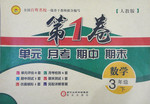题目内容
( C )
In Denmark, parents are allowed to set up a new school if they are dissatisfied with the school in the area where they are living. Although these schools have to follow the national courses, they are allowed a lot of choice in deciding what to teach. Some of these new schools are called “small schools” because usually the number of pupils in them is only sixty, but a school has to have at least twenty-seven pupils.
Cooleenbridge School in Ireland, is a small school similar to the ones in Denmark, it was set up by parents who came from Holland, Germany, Czechoslovakia, England and other parts of Ireland. They came because they wanted to live in the countryside and to grow their own food. In June 1986, they decided to start a school. They managed to get an old, disused primary-school (小学) building and started with twenty-four children aged from four to twelve.
The teachers say, “The important thing in school is doing, not sitting.” And so the courses includes yoga(瑜伽), cooking, knitting, kite-making, music, fishing, drama (戏剧) and environmental(环境的) river studies, as well as reading, writing, maths and science.
1.What are the rules for setting up a new school in Denmark?
A.Parents are allowed to set up their own school.
B.The school has to follow the national courses.
C.The school has to have at least 27 pupils.
D.All of the above.
2. The writer tells about the Cooleenbridge School in Ireland because ____ .
A.it was set up by parents who are not people of Denmark
B.it was taken as an example of this kind of “small school”
C.there were only twenty-four children
D.the pupils there were aged from 4 to 12
3.What makes this kind of school special?
A.It is set up by parents not by government.
B.It is free to decide what to teach.
C.The number of pupils in it is only sixty.
D.It has to have at least 27 pupils.
4. “The important thing in school is doing not sitting.” What the teachers say actually means ____ .
A.What we should do is teaching in the classroom, not sitting in the office.
B.Children should do more homework at home, not just sit in class to listen to the teachers.
C.Children should learn by themselves not rely on teachers.
D.Children should learn through practice not just from books.
5.The courses includes ____ .
A.yoga, cooking, knitting, kite-making, music, fishing, drama and environmental river studies, except reading, writing, maths and science
B.either yoga, cooking, knitting, kite-making, music, fishing, drama and environmental river studies, or reading, writing, maths and science
C.not only reading, writing, maths and science, but also yoga, cooking knitting, kitemaking, music, fishing, drama and environmental river studies
D.mainly yoga, cooking, knitting, kite-making, music, fishing, drama and environmental river studies, and supplemental (补充的) reading writing, maths and science
1.B
2.B
3.A
4.D
5.C
【解析】
试题分析:本文主要简述的是在丹麦有一种新型的学校的出现,学生的人数不多,可以自己决定教学内容,文章中还举例进行了详细说明。
1.B 细节题。根据文章第一段2,3行Although these schools have to follow the national courses, they are allowed a lot of choice in deciding what to teach.可知B项内容正确。
2.B 推理题。在文章第一段里作者介绍了这种类型的学校,在第二段中距离进行了说明,故B正确。
3.A 细节题。根据第二段第二句it was set up by parents who came from Holland, Germany, Czechoslovakia, England and other parts of Ireland.说明A正确。
4.D 推理题。根据 The teachers say, “The important thing in school is doing, not sitting.” And so the courses includes yoga(瑜伽), cooking, knitting, kite-making, music, fishing, drama (戏剧) and environmental(环境的) river studies, as well as reading, writing, maths and science.可知在这所学校里教授的都是一些很实用的课程都是在练习中学习而不仅仅是书本。故D项正确。
5.C 细节题。根据文章最后一段And so the courses includes yoga(瑜伽), cooking, knitting, kite-making, music, fishing, drama (戏剧) and environmental(环境的) river studies, as well as reading, writing, maths and science.可知C项正确。
考点:考查新闻报道类短文阅读
点评:本文主要简述的是在丹麦有一种新型的学校的出现,学生的人数不多,可以自己决定教学内容,文章中还举例进行了详细说明。要求考生在阅读理解整体语篇的基础上,把握文章的真正内涵。要吃透文章的字面意思,从字里行间捕捉有用的提示和线索,这是推理的前提和基础;要对文字的表面信息进行挖掘加工,由表入里,由浅入深,从具体到抽象,从非凡到一般,通过分析、综合、判定等,进行深层处理,符合逻辑地推理。不能就是论事,断章取义,以偏概全。要忠实于原文,以文章提供的事实和线索为依据。

 第1卷单元月考期中期末系列答案
第1卷单元月考期中期末系列答案